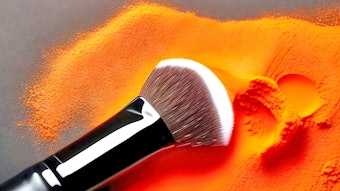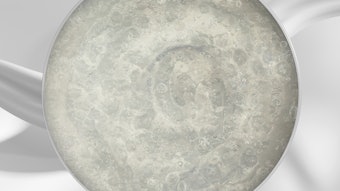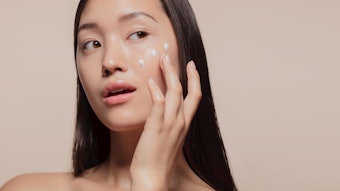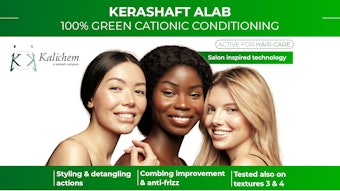At in-cosmetics 2012 in Bangkok, Thailand, Lipotec introduced a hexapeptide manufactured by its peptide brand Aimtec that attenuates neurogenic inflammation to relieve itch and discomfort in sensitive skin. Delisens (Proposed INCI: Butylene Glycol (and) Water (aqua) (and) Citric Acid (and) Acetyl Hexapeptide-46) diminishes the pro-inflammatory mediators released by proteinase-activated receptor 2 (PAR-2) to reduce inflammation and its associated discomfort. It also helps restore barrier function and provides a photoprotective effect to prevent future inflammation.
PAR-2 activation (endogenously by trypsin-like serine proteases) amplifies imflammation via the up-regulation of inflammatory mediators such as interleukin-6 (IL-6) and interleukin-8 (IL-8) in addition to inducing transient receptor potential vanilloid-1 (TRPV-1) sensitization, leading to the release of inflammatory peptide calcitonin gene-related peptide and supstance P (SP) also involved in neurogenic inflammation. Furthermore, activated PAR-2 delays barrier function recovery due to scratching after contact with chemicals like allergens.
By down-regulating PAR-2 activity, the hexapeptide solution reduces the release of CRGP, IL-6 and IL-8 from skin cells. This activity mediates neurogenic inflammation, thereby reducing the pain, discomfort and itching associated with sensitive skin. The hexapeptide also helps restore damaged tissue integrity, aiding the re-epithelization and repair of damaged skin.
In addition to the above main actions, the hexapeptide solution was also found to hydrate dry skin, making skin smoother and softer.
The product appears as a transparent solution with 0.025% active. It is soluble in glycols. The hexapeptide solution is recommended at 2-5% in daily skin care formulations and any formulation for sensitive skin where a soothing and repairing effect is needed.
In in vitro testing, 4% of the hexapeptide solution in a cream reduced by the release of inflammatory cytokinesinduced by cosmetic allergens by 58.2%. A cream containing 2% of the solution was applied to volunteers after treatment with a 10% lactic acid solution. After 1 hr, 16% of the volunteers did not feel any stinging. This hexapeptide has also been shown to mitigate the stinging and burning effect induced by capsaicin on the skin.
Hydration from 2% of the hexapeptide solution in a cream was shown after one week of treatment, where hydration of the legs increased by 34% compared to placebo.










